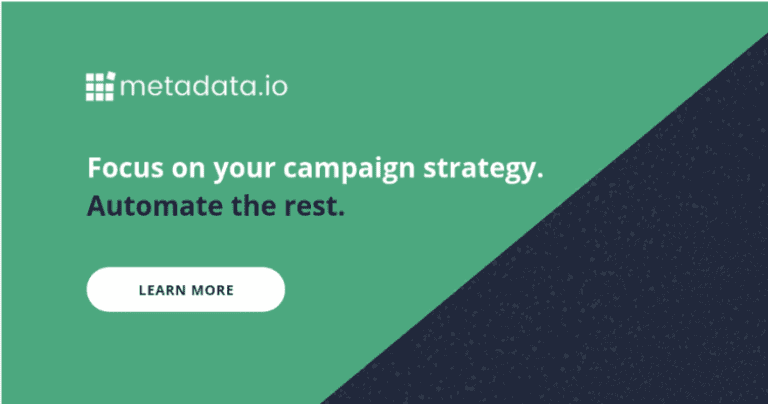ABM vs Lead Gen: A Comprehensive Guide

Table of Contents
The choice between account-based marketing (ABM) vs lead generation is a practical decision that affects your sales and marketing alignment, resource allocation, and ultimately, your bottom line. ABM targets specific accounts by aligning sales and marketing to create personalized outreach. Lead generation, on the other hand, pulls in a broader audience, capturing more leads who later get nurtured by sales.
In this article, we’ll discuss how these strategies differ, and which one could be better for your business and overall success.
ABM vs Lead Generation: Head-to-Head Comparison
ABM and lead generation differ significantly in targeting and personalization. ABM locks onto specific target accounts and offers a personalized, one-to-one marketing strategy. If you already know which accounts you want to land or expand, ABM stays laser-focused. Lead generation, by contrast, aims to gather high volumes of potential customers. These leads may or may not be the ideal fit.
Performance
ABM emphasizes depth over breadth. Success depends on how well you engage decision-makers within each account, often leading to higher-quality deals and pipeline acceleration.
Furthermore, companies implementing ABM strategies often report higher average deal sizes, and increased customer loyalty due to the personalized approach.
Lead generation prioritizes capturing as many potential customers as possible and is effective if you need a fast, broad pipeline.
Ease of Implementation
When comparing ABM and lead generation in terms of implementation, ABM demands close alignment between sales and marketing, along with sophisticated tracking tools. The learning curve can be steep and might require investment in technology and training to personalize interactions at scale.
Additionally, ABM campaigns often need continuous monitoring and adjustment to respond to specific account needs.
Lead generation is simpler to implement. It typically relies on mass communication and marketing automation, translating to less setup and faster results, though with less personalization. This makes it accessible for teams with limited resources or those seeking quick wins.
Cost
Because ABM is resource-intensive, it can carry a higher upfront price tag. You’re investing time and budget into fewer accounts, but each one holds more potential revenue. However, while ABM may require greater initial investment, the higher conversion rates and larger deal sizes can lead to a more favorable ROI over time.
Lead generation typically costs less on a per-lead basis and can move faster, thanks to standardized marketing assets. Conversely, the lower upfront costs in lead generation might result in higher expenses later due to lower conversion rates.
A platform such as Metadata can help you optimize ad spend across your campaigns and prevent you from spending your ad budget on audiences and platforms that don’t convert.
Pros & Cons of Account-Based Marketing And Lead Generation
Account-Based Marketing Pros
One of the significant advantages of ABM is the ability to create personalized campaigns that resonate deeply with specific accounts. Tailoring marketing messages and content to address the unique needs and pain points of each target account allows businesses to engage prospects more effectively and build stronger relationships.
Since the focus is on quality rather than quantity, each lead is more likely to result in a successful sale, making ABM an efficient strategy for businesses seeking meaningful engagements with high-value clients.
Account-Based Marketing Cons
Despite its benefits, ABM requires more time and resources upfront compared to traditional marketing strategies. The process of researching accounts, developing customized content, and coordinating between sales and marketing teams can be resource-intensive.
Additionally, sales cycles may extend before deals close, as the approach involves building long-term relationships and engaging multiple stakeholders within an organization. This extended timeline can be challenging for businesses that need quicker results or have limited resources to sustain prolonged sales efforts.
As a result, many B2B businesses blend ABM with other demand generation strategies.
Lead Generation Pros
Lead generation offers the advantage of faster lead capture and wider brand awareness. By reaching a broad audience through various channels like social media, content marketing, video campaigns, and email, companies can quickly build a pipeline of potential customers. (Especially if they use targeted lookalike audiences.)
It is also generally simpler to automate, making it accessible for companies with limited resources or those seeking immediate results.
Lead Generation Cons
The main disadvantage is that the quality of leads generated through this broad approach can sometimes dip if the focus is too heavily on volume over quality. A large number of unqualified leads can overwhelm sales teams and reduce overall conversion rates, so it helps to use a lead enrichment solution to provide sales with more information about who they’re contacting.
Sales and marketing alignment might be weaker in lead generation strategies, as the two teams often operate independently until leads are qualified. This lack of coordination can lead to missed opportunities to nurture leads effectively.
Which One to Choose: Account-Based Marketing Or Lead Generation
Choosing between ABM and lead generation comes down to your audience and revenue goals. ABM suits B2B brands that rely on larger contract values and deeper relationships. Lead generation appeals to organizations that need to fill the funnel quickly or cater to broader markets where volume is important.
Consider your company’s sales cycle length and the complexity of your offerings as well. If your products require significant customer education and a longer decision-making process, ABM may yield better results by nurturing key stakeholders.
Conversely, if your solutions are straightforward and you aim for quick conversions, a targeted lead generation strategy can efficiently attract a higher number of qualified prospects.
The critical question in comparing these two strategies boils down to effectiveness. However, neither ABM nor traditional lead generation is universally better—it all depends on what you’re trying to accomplish.
Research suggests ABM often drives bigger returns when you can handle the complexity of personalizing campaigns. But lead generation might serve you better if you’re trying to reach a wider audience. If you want a close-knit roster of high-value clients, aim for ABM. If you need broad awareness and a growing pipeline, lean on lead generation.
Boost Account-Based Marketing and Lead Generation with Automation
In the ABM vs lead generation debate, your choice depends on your business priorities. For high-value deals and deep relationships, ABM excels. For rapid growth, lead generation is a better choice. You can also use both of these strategies at the same time.
Metadata’s platform empowers your marketing efforts by streamlining both ABM and lead generation strategies. With advanced audience targeting, Metadata automatically delivers hyper-personalized campaigns to key decision-makers across your target accounts. This not only improves your ABM outreach but also drives lead generation through optimized, scalable ad performance.
With Metadata, you can attract, engage, and convert high-value prospects faster and more efficiently. Book a demo today to see how Metadata can transform your ABM and lead generation results.


